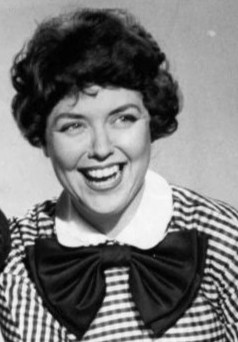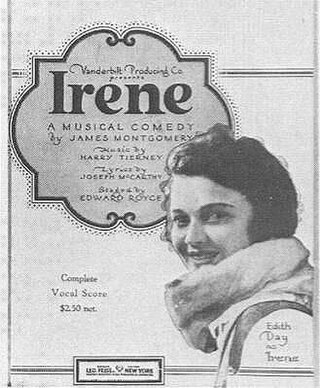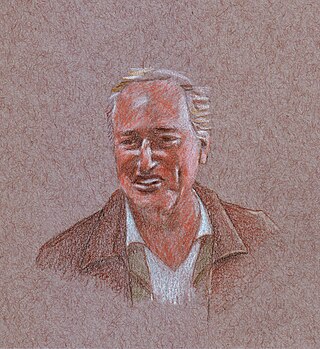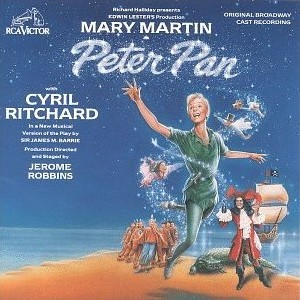
On Golden Pond is a 1979 play by Ernest Thompson. The plot focuses on aging couple Ethel and Norman Thayer, who spend each summer at their home on a lake called Golden Pond. During the year the story takes place, they are visited by daughter Chelsea with her fiancé Billy Ray and his son Billy Ray Jr. The play explores the often turbulent relationship the young woman shared with her father growing up, and the difficulties faced by a couple in the twilight years of a long marriage.

Dorothy Loudon was an American actress and singer. She won the Tony Award for Best Lead Actress in a Musical in 1977 for her performance as Miss Hannigan in Annie. Loudon was also nominated for Tony Awards for her lead performances in the musicals The Fig Leaves Are Falling and Ballroom, as well as a Golden Globe award for her appearances on The Garry Moore Show.

Jules Ralph Feiffer is an American cartoonist and author, who at one time was considered the most widely read satirist in the country. He won the Pulitzer Prize in 1986 for editorial cartooning, and in 2004 he was inducted into the Comic Book Hall of Fame. He wrote the animated short Munro, which won an Academy Award for Best Animated Short Film in 1961. The Library of Congress has recognized his "remarkable legacy", from 1946 to the present, as a cartoonist, playwright, screenwriter, adult and children's book author, illustrator, and art instructor.

Charles Edward Durning was an American actor who appeared in over 200 movies, television shows and plays. Durning's best-known films include The Sting (1973), Dog Day Afternoon (1975), The Muppet Movie (1979), True Confessions (1981), Tootsie (1982), Dick Tracy (1990), and O Brother, Where Art Thou? (2000). He was nominated for the Academy Award for Best Supporting Actor for both The Best Little Whorehouse in Texas (1982) and To Be or Not to Be (1983). Prior to his acting career, Durning served in World War II and was decorated for valor in combat.

Amy Davis Irving is an American actress and singer, who worked in film, stage, and television. Her accolades include an Obie Award, and nominations for two Golden Globe Awards and an Academy Award.

Charles Mayberry Kimbrough was an American actor, best known for his role as the straight-faced anchorman Jim Dial on Murphy Brown. In 1990, his performance in the role earned him a nomination for an Emmy Award for "Outstanding Supporting Actor in a Comedy Series".

Judy Kuhn is an American actress, singer and activist, known for her work in musical theatre. A four-time Tony Award nominee, she has released four studio albums and sang the title role in the 1995 film Pocahontas, including her rendition of the song "Colors of the Wind", which won its composers the Academy Award for Best Original Song.

Irene is a musical with a book by James Montgomery, lyrics by Joseph McCarthy, and music by Harry Tierney. Based on Montgomery's play Irene O'Dare, it is set in New York City's Upper West Side and focuses on immigrant shop assistant Irene O'Dare, who is introduced to Long Island's high society when she is hired to tune a piano for a society gentleman.

Barbara Densmoor Harris was an American Tony Award-winning Broadway stage star and Academy Award-nominated motion picture actress.
Indians is a 1968 play by Arthur Kopit.
The Circle Repertory Company, originally named the Circle Theater Company, was a theatre company in New York City that ran from 1969 to 1996. It was founded on July 14, 1969, in Manhattan, in a second floor loft at Broadway and 83rd Street by director Marshall W. Mason, playwright Lanford Wilson, director Rob Thirkield, and actress Tanya Berezin, all of whom were veterans of the Caffe Cino. The plan was to establish a pool of artists — actors, directors, playwrights and designers — who would work together in the creation of plays. In 1974, The New York Times critic Mel Gussow acclaimed Circle Rep as the "chief provider of new American plays."

Marshall W. Mason is an American theater director, educator, and writer. Mason founded the Circle Repertory Company in New York City and was artistic director of the company for 18 years (1969–1987). He received an Obie Award for Sustained Achievement in 1983. In 2016, he received the Tony Award for Lifetime Achievement in the Theater.
Wings is a 1978 play by American playwright Arthur Kopit. Originating as a radio play, it was later adapted for stage and screen.

Little Murders is a 1971 American black comedy film directed by Alan Arkin, in his feature film directorial debut, and starring Elliott Gould and Marcia Rodd. Based on the stage play of the same name by Jules Feiffer, it is the story of a woman, Patsy (Rodd), who brings home her boyfriend, Alfred (Gould), to meet her severely dysfunctional family amidst a series of random shootings, garbage strikes and electrical outages ravaging their New York City neighborhood.
Harry Rigby was an American theatre producer and writer.

Peter Pan is a musical based on J. M. Barrie's 1904 play Peter Pan and his 1911 novelization of it, Peter and Wendy. The music is mostly by Moose Charlap, with additional music by Jule Styne, and most of the lyrics were written by Carolyn Leigh, with additional lyrics by Betty Comden and Adolph Green.

John Lee Beatty is an American scenic designer who has created set designs for more than 115 Broadway shows and has designed for other productions. He won two Tony Awards, for Talley's Folly (1980) and The Nance (2013), was nominated for 13 more, and he won five Drama Desk Awards and was nominated for 10 others.
Nancy Snyder is an American actress who won the Clarence Derwent Award in 1976 and the Outer Critics Circle Best Actress award in the 1977–78 season.
Halley Feiffer is an American actress, playwright and television writer, known for her award-winning plays I'm Gonna Pray for You So Hard, Moscow Moscow Moscow Moscow Moscow Moscow and A Funny Thing Happened on the Way to the Gynecologic Oncology Unit at Memorial Sloan Kettering Cancer Center of New York City, and for showrunning and writing the entire season of American Horror Story: Delicate starring Emma Roberts and Kim Kardashian.
Kathleen Rowe McAllen is an American actress, best known for appearing in stage musicals and soap operas.













